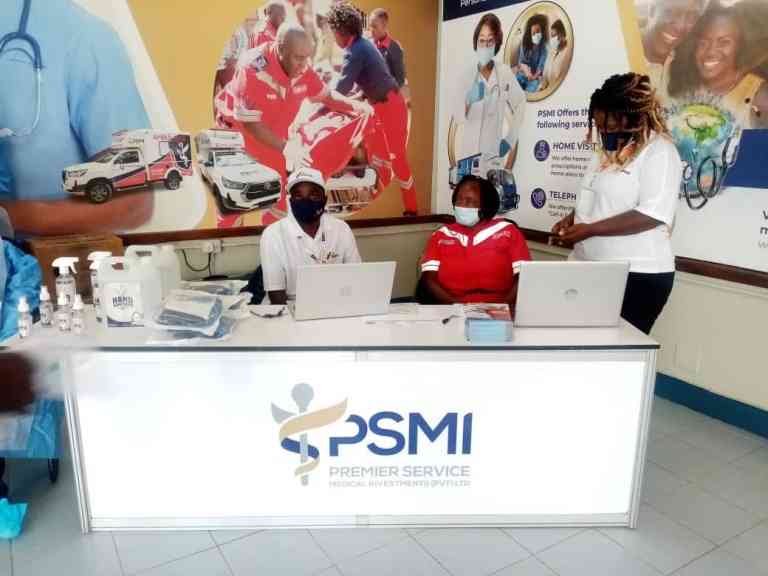
PREMIER Service Medical Investments(PSMI) has been in the Press for wrong reasons this week as some sections of Claybank and Westend hospitals were closed because of so-called cashflow problems. It is not a secret that some workers have gone for three months without salaries. Considering the state of the economy, one wonders how these workers have been surviving. Without both intrinsic and extrinsic motivation, there is obvious poor service delivery. It is not a secret that funds have been looted from PSMI, with management splashing thousands of dollars on state-of-the art vehicles, lucrative houses, expensive holidays among other money-sucking activities. Corruption has grounded life-saving entities that had potential to lift the national flag higher. The corruption scourge lingers in many public institutions, parastatals and even at some private institutions.
Countries like China, North Korea, Iran and Saudi Arabia impose capital punishment on a number of offences that include rape, grand theft, drug trafficking, treason, espionage, political dissidence to mention just but a few. The resultant executions are mostly carried out by firing squads, hanging or decapitations. The punishments are a deterrent to committing such crimes of high magnitude. Corruption has been talked about in many countries but the scourge is threatening to ground the world, especially developing countries. According to the African Union, about $140 billion dollars is lost to corruption in Africa, a figure which can sustain at least 30 African countries in 12 months even if there is zero production in the respective countries. Transparency International estimates that close to US$2 billion is lost yearly in Zimbabwe to corruption. The health sector is in the doldrums globally and corruption is fingered as one of the top causes.
Researchers estimate that about $455 billion of the $7,35 trillion dollars spent on health care annually is lost to fraud and corruption. The Organisation for Economic Cooperation and Development posits that 1,6% of global annual deaths of children under five years of age are directly or indirectly linked to corruption. So many factors have been implicated as precipitants for rampant corruption in the health sector in Zimbabwe and chief among them are chronic government underfunding, insufficient regulatory oversight, lack of transparency in government, lax prosecution. The end result is general decay of infrastructure, equipment, poor service, poor quality of life, high morbidity and mortality rates among others.
Corruption is complex and multi-faceted and in the health sector, it has been found to have many forms in various areas, such as health facility construction, equipment and supply purchasing, pharmaceutical distribution and use, health worker education and the provision of healthcare services. How much is lost to corruption when even tender procedures are flouted willy-nilly? How many hospital bosses have gone to jail for clear corruption at their institutions? It is time corruption is stemmed if the country is to have sound national development.
Health service providers have been at loggerheads with some medical aid societies that are failing to honour their payment obligations. Premier Service Medical Aid Society (PSMAS) has been in the papers for wrong reasons. Premier Service Medical Investment was formed in 2003 as an investment arm of PSMAS. The company was formed to own and run facilities such as clinics, hospitals, pharmacies, laboratories required by members. The bulk of the PSMAS members are civil servants that have 80% of their contributions covered by government through the Ministry of Finance. It is sad that the company bosses have been arrested for corruption and theft to the tune of close to half a million dollars which could be used to pay workers who have gone for months now without salaries. Imagine spending a lot of money on holidays yet the shopfloor workers are languishing in poverty. How many lives have been lost because of such corrupt activities when patients could not access the appropriate medical services because workers were protesting? How many patients developed complicated conditions because they could not access the rightful medicines or medical investigations? How come the 2017 shenanigans of the PSMI bosses are getting out today, five years down the line when both Claybank and Westend hospitals are already grounded.
Government has chipped in by injecting US$1 million to PSMI in order to stock drugs and cover some overheads. My worry is if there is no strong turnaround strategy, the financial injection is a short-term intervention that will not steer the company forward. Financial mismanagement will ensue and the consequences will be the same. Looting will continue at the hands of the same management. Nepotism and favouritism will still prevail, so government should set conditions of service of top management before releasing such large amounts of cash.
There is surely a bloated labourforce at PSMI and it is time when downsizing is carried out if the organisation is to remain viable. It is absurd for PSMI management to blame the cash flow problems on Premier Service Medical Aid Society yet all the five PSMI hospitals are free to attend to all patients in Zimbabwe. 90% of Zimbabweans are not on medical aid cover hence they use out-of-pocket payments. Where is the cash from 90% of the patients that are not on medical aid? PSMI has 6 hospitals which include Shashi in Bindura, Westend in Harare, Claybank in Gweru, Hillside in Mutare, Chiredzi hospital and Parkview Renal hospital in Harare. 5 of these hospitals boast of state-of-the art equipment and offer virtually all the services required by an average citizen. Where is the problem then?
Time should be now that corruption is fought tooth and nail. Deterrent sentences should be imposed on the culprits by the courts which up to now are seen to be too lax on corruption prosecution.
- Lobby group bemoans impact of graft on women
- Corruption watch: Rogue cops: Blame it on the bosses
- DJ Ladyg2 fights stereotype in showbiz
- Corruption watch: Who is benefitting from the Pomona sham deal?
Keep Reading
Stop corruption today to save the health sector!








